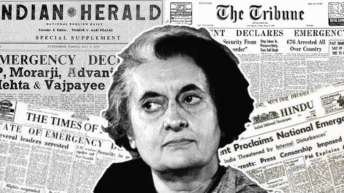|
Listen to article
Getting your Trinity Audio player ready...
|

Sasikala’s stunning about-turn, renouncing politics even before making an official debut after her release from prison on January 27, 2021, is eerily reminiscent of film star Rajinikanth’s abjuring the political realm before entering it. Both events occurred a day after Union Home Minister Amit Shah visited Chennai.
The high-profile former aide of late Chief Minister J. Jayalalithaa urged the AIADMK cadres to unite to defeat the DMK led by M.K. Stalin, mending a potential split in the party on the issue of her return, even as she took the rank and file by surprise. The development is seen as a big boost for Chief Minister Edappadi K. Palaniswami, deputy Chief Minister O. Panneerselvam, and the AIADMK alliance, which includes the Bharatiya Janata Party.
Analysts attribute the sudden volte face primarily to health reasons. Having caught the dreaded COVID-19 days before her release from prison, Sasikala could be feeling weak and unable to take the rough and tumble of electioneering. Some allege differences with her nephew, TTV Dhinakaran.
Informed sources predict that the State Government’s One-Man Commission investigating the cause of Jayalalithaa’s death will fall flat. While there is no suggestion of a quid quo pro, the death of the then Chief Minister had raised questions regarding the state of her health when she was actually moved to hospital, and the manner in which visitors, including her own family members, were denied access to the intensive care unit where she was being treated. Should the Commission conclude that there was no mala fide in Jayalalithaa’s death, the Sword of Damocles hanging over Sasikala’s head that would be used to demonise her if she joined the electoral fray, would simply fade away.
Experts point out that VK Sasikala, called Chinnamma (little mother), was nowhere near Jayalalithaa in popularity and had less power than she projected, hoping to benefit from the emotions of party cadres and Amma (Jayalalithaa) loyalists. Reality led her to compromise on legal matters such as the fight for the party’s two leaves election symbol that was retained by the EPS-OPS combine. In September 2017, she was removed from the post of general secretary.
It now seems likely that EPS will retain his pull with his Gounder community while OPS will be able to bring the 30-MLA Thevar belt to the party. It was feared that Sasikala being a Thevar would divide the community’s votes, but now that fear is over.
While seat sharing is still being worked out, it is pertinent that the AIADMK supported the Ram Mandir in its election manifesto, whereas the DMK had opposed the Ram Setu in the Supreme Court during the UPA regime, and had even given an affidavit questioning the historical existence of Sri Rama without the knowledge of the Union Cabinet. The affidavit was hastily withdrawn after a public backlash. As such, the ADMK is comfortable aligning with the BJP.
The development has come as a setback to TTV Dhinakaran, independent MLA and founder of Amma Makkal Munnettra Kazhagam (AMMK). Admitting his unhappiness, he said, “I tried my best to persuade her (Sasikala) not to take this decision but to no avail… AMMK will contest this election under my leadership.” Observers recall that early in 2017, Sasikala had engineered defections in the AIADMK, but the unexpected indictment by the Supreme Court derailed her plans to seize power. She had taken over as interim general secretary even though the party constitution stipulated that no one can hold any party office without an unbroken membership for five years whereas she had been expelled by Jayalalithaa in 2011. Thus, by ending a determined quest for power, Sasikala’s capitulation has upset Dhinakaran’s fledgling political ambitions.
As far as the popularity of the state government is concerned, EPS has earned praise for his handling of the COVID-19 pandemic, while OPS successfully managed the emotive Jallikattu issue. Since then, the festival is celebrated annually in the State.
The only tricky issue facing the ruling AIADMK is its recent caste engineering whereby seven Pallar sub-castes were de-listed from the Scheduled Caste list and designated as ‘Devendra Kula Vellalar’. This has caused outrage among the numerically large Vellalar community. Among the Pallar also, some lament that they have not fully availed of the benefits of the SC quota provided by the Indian constitution. Vellalars claim the move is identity theft and have protested against it. However, they welcomed the desire of the Pallar community to reject the SC identity.
Vellalar have historically been the administrative class in villages. They are landowners and were known as the ‘Velir’ clan during the Sangam age; they served as heads of provinces, ministers in courts, and commander-in-chief of the armies. They earned the right to have marital relationships with the ruling houses of three great empires of Tamizhagam viz., Chera, Chola, Pandya. The 18 Nayanmars hailed from the Vellalar community. Widely dispersed across Tamil Nadu, they are variously known as ‘Mudali’ (the first) in northern Tamil Nadu, ‘Gounder’ (the protector) in western Tamil Nadu, ‘Pillai’ (the prince) in central and southern Tamil Nadu. They comprise nearly 35 per cent of the State population.
The Pallar are an important group of agriculturalists adept at paddy cultivation and are known by various titles such as Pallan, Kudumban, Pannaadi, Moopan and Kaaladi. They number around 22 lakhs per the 2001 Census. The ‘Vaathiriyar’ sub-caste petitioned the State government to not be included as “Devendra Kula Vellalar”.
This socio-political controversy is the enigmatic X-factor that can have an untold impact on the voting behaviour of the electorate.






Add comment